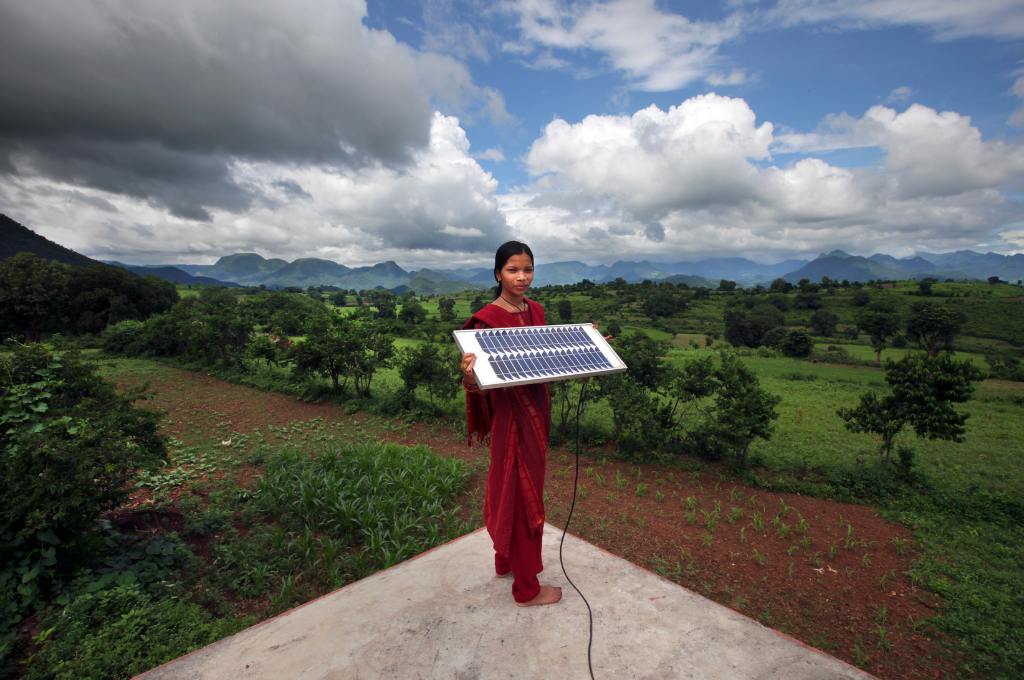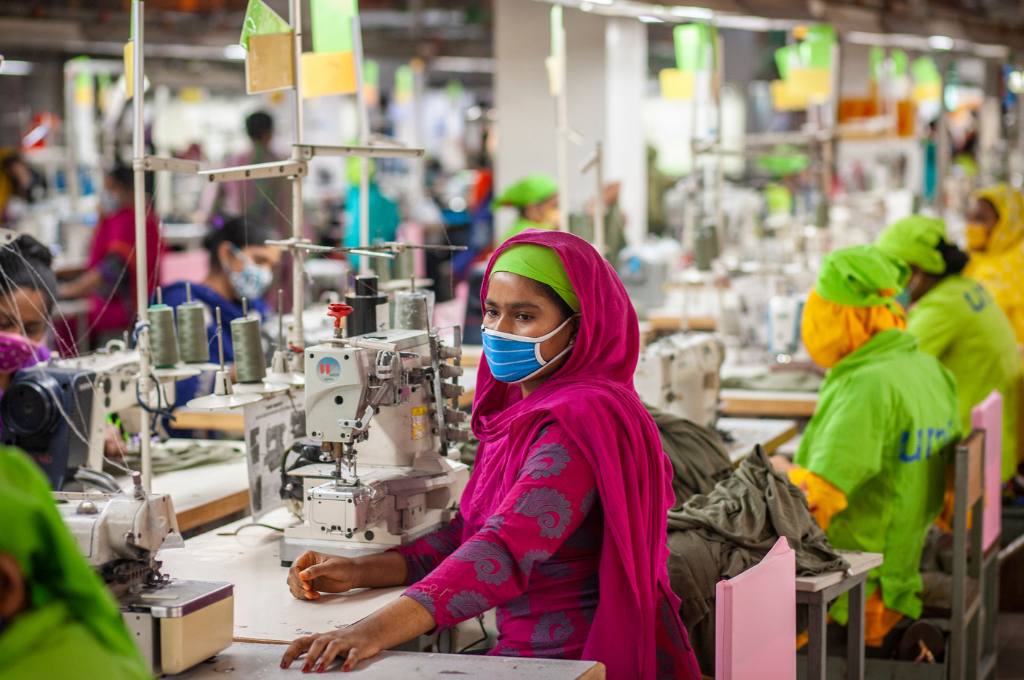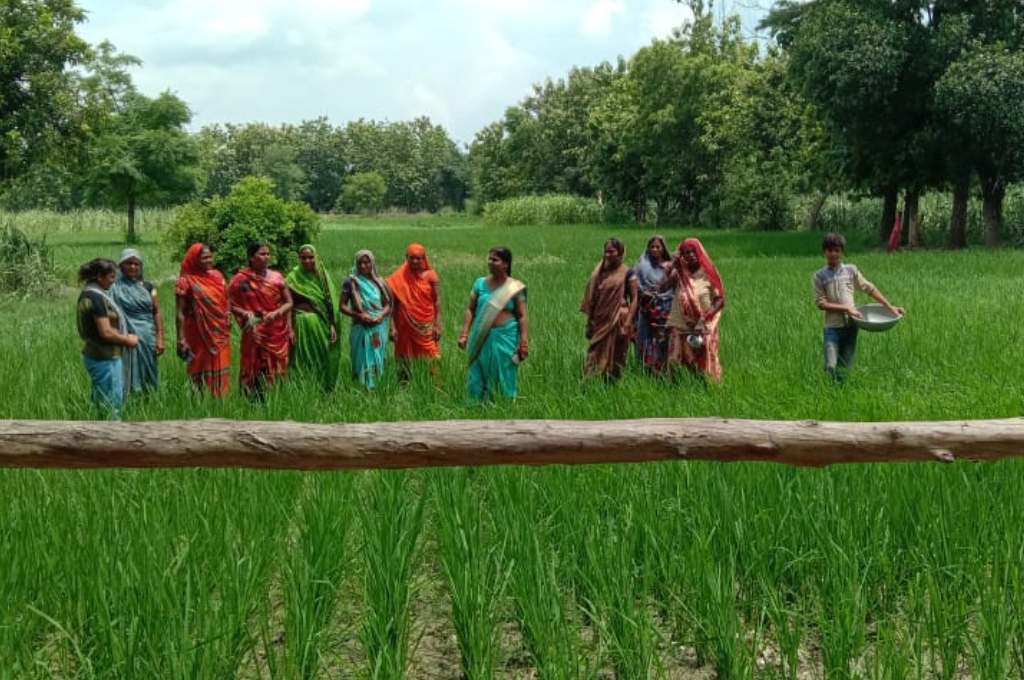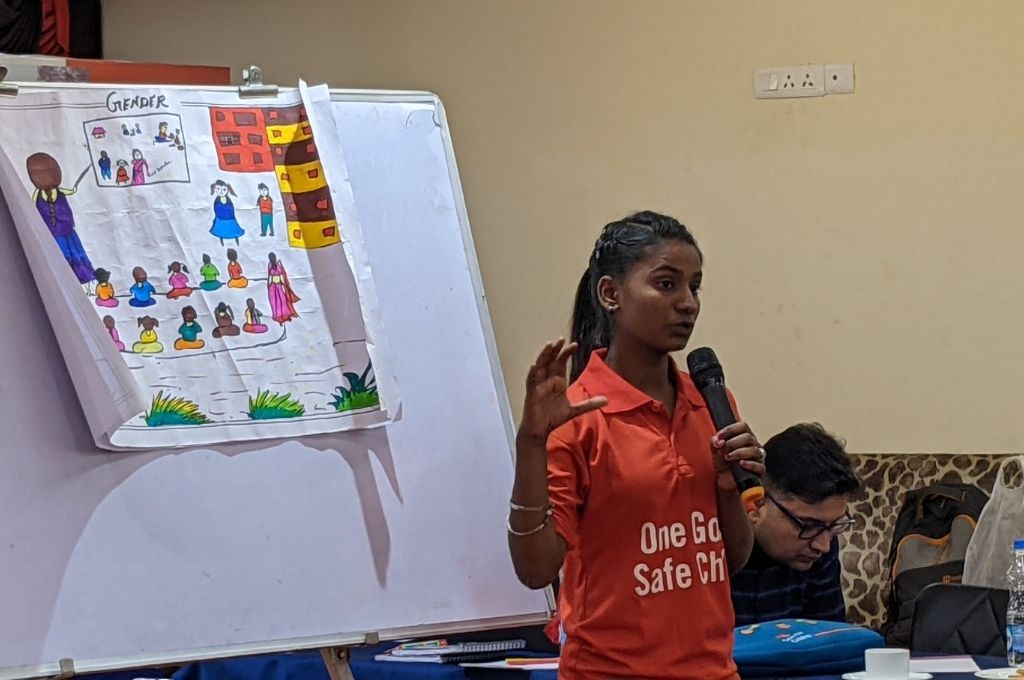The first-ever International Day of Care and Support was commemorated on October 29, 2023. On this milestone occasion, we want to draw the international development community’s attention to the interconnections between unpaid care work and the transition to low-carbon economies, where clean energy is a major driver. While the links between clean energy and care work might not be evident at first, a report published last year by the International Development Research Centre (IDRC) found that initiatives addressing these issues may be mutually reinforcing, even mutually dependent.
On the one hand, social expectations that women must shoulder most of the responsibility for unpaid care work can hinder their engagement in clean energy businesses, initiatives and investments, and thwart the clean energy agenda. On the other hand, access to clean energy resources can potentially alter these long-standing social norms by reducing the drudgery of household care work and redistributing it more equitably between men and women. For example, a 2020 report by Oxfam shows that the introduction of certain time- and labour-saving clean energy technologies can be associated with men’s increased participation in care work, when they are coupled with targeted interventions to support this behavioral change.
As investments in the clean energy transition grow, and social innovators expand access to clean energy solutions, these solutions must be intentionally designed to engage women and address their heavy and unequal responsibility for unpaid care work, to ensure that no one is left behind. Below, we’ll take a closer look at these interlocking challenges, highlighting some innovative approaches that are addressing them while presenting new opportunities for women and the business community.
Women are underrepresented in the clean energy sector
According to the International Energy Agency, more than 770 million people—most of them in rural areas in low- and middle-income countries—have limited or no access to electricity, and 2.5 billion people lack access to clean technologies and fuels for cooking, lighting and heating.
Women bear the greatest burden of energy poverty because of existing social norms.
As is often the case with global development challenges, women bear the greatest burden of this energy poverty because of existing social norms. As the primary providers of household care work, women are often responsible for looking after children, older persons, and persons with illness or disabilities, and for domestic tasks such as food preparation and cooking, cleaning, and collecting water and fuel. The lack of access to affordable and reliable clean energy makes these tasks harder to perform, placing additional burdens on women’s time, which in turn limits their opportunities for education, paid work and entrepreneurship—including within the clean energy sector itself.
Clean energy employment worldwide reached 12 million in 2020, and is expected to continue growing rapidly in the future. However, the sector is heavily male dominated. A 2019 global survey by the International Renewable Energy Agency found that women represented just 32% of the clean energy workforce. They were also disproportionately grouped in “feminized” occupations in administrative and support services, holding only 28% of the technical positions that require science, technology, engineering and mathematics (STEM) training.
Women are also underrepresented in senior leadership and management positions in clean energy. A 2019 study by the International Energy Agency found that only 10.8% of senior management positions in the renewable energy sector were held by women.

Care work is a barrier to women’s engagement in clean energy
Many of the barriers to women’s engagement in clean energy that have been identified are similar to the barriers women face in the traditional energy sector—and elsewhere in the global economy. They include gender stereotypes about women’s abilities and the appropriateness of different jobs; lack of access to funding and financial services; lower levels of education and training; isolation from male-dominated business networks; and limited female role models and mentors.
The time spent on household care work has a direct impact on women’s schedules and the amount of time they can dedicate to clean energy.
As mentioned above, social norms assigning the responsibility for unpaid household care work to women also significantly limit their employment and entrepreneurship in clean energy. In some rural communities and low-income countries, women spend up to 14 hours each day on unpaid care work (compared to just over four hours for men). In South Asia, women spend up to 20 hours per week (or more) on a single household task: collecting fuel to use for cooking, lighting and heating. Likewise, in some countries in Africa, this task may consume over three hours each day. Simply put, this time spent on household care work has a direct impact on women’s schedules and the amount of time they can dedicate to clean energy.
Mobility constraints are another key challenge. Work in the clean energy sector can require significant travel and time away from home to sell, install and maintain clean energy solutions, or to access renewable energy construction projects. This is difficult for women with caregiving responsibilities, especially those with young children and those living in rural areas where distances are greater and transportation is limited.
Finally, the clean energy sector currently lacks a supportive policy environment for gender equality and care, because it has been molded around the needs of a predominantly male workforce. Women’s underrepresentation in the sector and the perception that care work does not apply to men contribute to the absence of gender-responsive and family-friendly workplace policies and arrangements. Without adequate leave policies, flexible work schedules, lactation rooms, and on-site or nearby childcare services, for example, women are less likely to enter and remain in the clean energy sector.
The irony is that without care work, the energy sector would not be able to perform. It relies on these long hours of invisible female labour that allow the industry’s mostly male workers to perform their duties, as their own and their loved ones’ care needs are met.
Women have a leading role to play in the clean energy transition
However, despite these challenges, women have a leading role to play as change agents in a sustainable and inclusive clean energy transition—as energy consumers, producers, entrepreneurs and decision-makers.
Studies have found that there are advantages in involving women from start to finish in the design of clean energy solutions, because they hold first-hand knowledge of household and community energy needs. There is also evidence that engaging women across the clean energy value chain can help to boost sales, especially in rural and hard-to-reach areas. For instance, because of social norms, women may feel more comfortable and confident speaking with female sales agents who better understand their energy needs and use. The same is true for the distribution, installation and repair of clean energy solutions, which can require sales agents to enter households during hours when men may not be home.
For the development, social enterprise and broader business sectors to enable women’s growing involvement in the energy transition, stakeholders will have to tackle the gendered and care-related barriers that obstruct women’s access to clean energy resources, solutions, employment and entrepreneurship. This response will also require a better understanding and recognition of how the clean energy sector itself can benefit from meaningfully engaging women across the value chain, owing largely to their household energy and care responsibilities.
Social enterprise solutions for care and clean energy needs
Social enterprises can play an important role in facilitating women’s increased involvement in clean energy, in part by providing access to clean energy technologies that can help to make some care tasks more efficient and free up women’s time for other productive work. The IDRC-supported Transforming the Care Economy through Impact Investing initiative—which aims to generate knowledge on the impact and scalability of market-based solutions so they can contribute to global progress on gender equality—has identified several examples of enterprises that are embracing this role.
Tierra Grata in Colombia is one of them. This social enterprise develops and implements energy, water and sanitation solutions, serving 12,500 customers in 48 rural villages in the country. Its solar panels, portable solar lamps, drip water filters and ecological dry toilets are low-cost, environmentally friendly, and easy and fast to install. They reduce the long hours women and girls spend boiling water or fetching wood. Tierra Grata also offers capacity-strengthening to customers and beneficiaries, to improve their knowledge and skills in repairing and maintaining these products.
Another example, Usafi, is a for-profit company that manufactures and distributes cookstoves and high-energy, high-heat content biomass briquettes in Kenya. The company has reached over 4,200 households. Similarly, Atec, a for-profit enterprise working in Bangladesh and Cambodia, provides sustainable, affordable and accessible clean cooking products for low-income households. Solutions such as these companies’ energy-efficient appliances and clean energy technologies reduce the time and drudgery associated with domestic tasks, and further help to ease women’s care work in subsistence agriculture and household food production.
Solely facilitating access to clean energy technologies, however, is not enough. In its evaluation of a program that aimed to reduce women’s time on care tasks, Oxfam found that technology-focused solutions need to be coupled with targeted interventions to change social norms. Likewise, programs aiming to promote women’s employment and entrepreneurship in clean energy need to integrate a gender and care lens into their design to eliminate the barriers that women face—including through gender-responsive and family-friendly workplace policies and arrangements like those we described above. Clean energy training, employment and entrepreneurship initiatives should also be tailored and scheduled around women’s childcare and domestic workloads, while recognizing and helping to address the care responsibilities that may prevent women from participating.
Unless we consider the heavy and unequal responsibility for unpaid care work that is shouldered by women and address these structural barriers, the transition to low-carbon economies will falter—and possibly reinforce existing gender inequalities in the process. We will also miss out on women’s clean energy contributions and innovations, which could prevent the world from moving towards the transformation we need to see. In other words, the takeaway is clear: A sustainable and inclusive clean energy transition needs to address unpaid care work.
This article was originally published on NextBillion.







